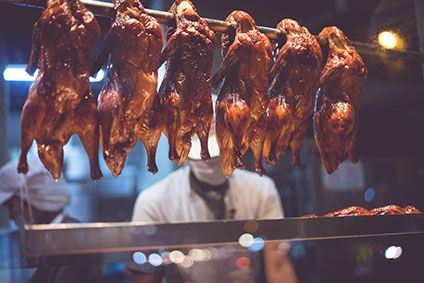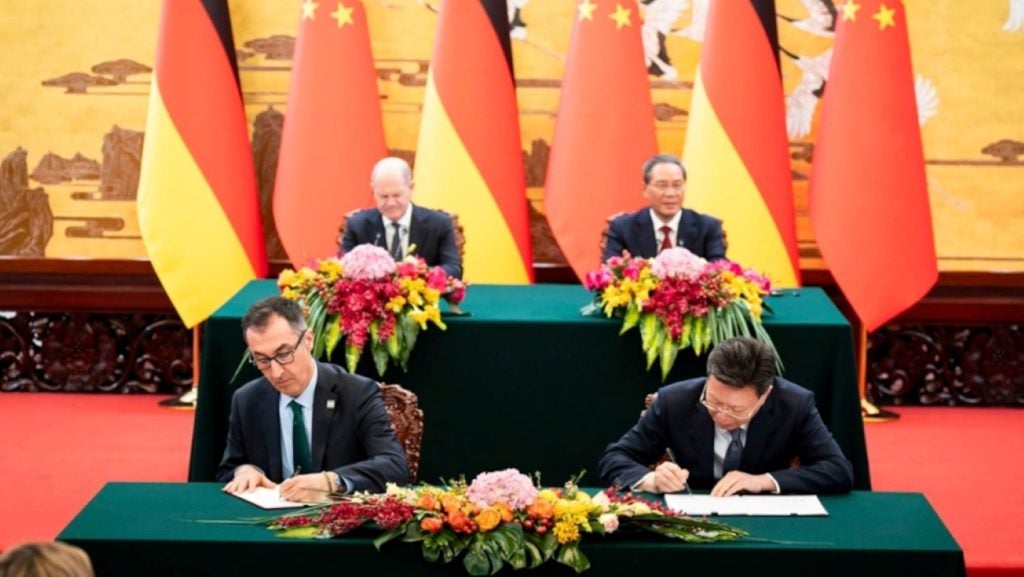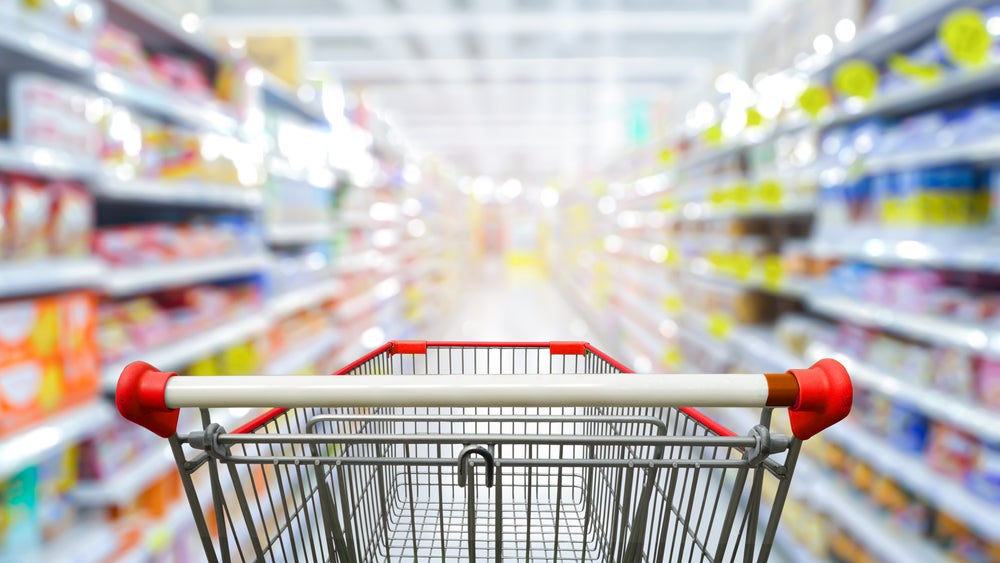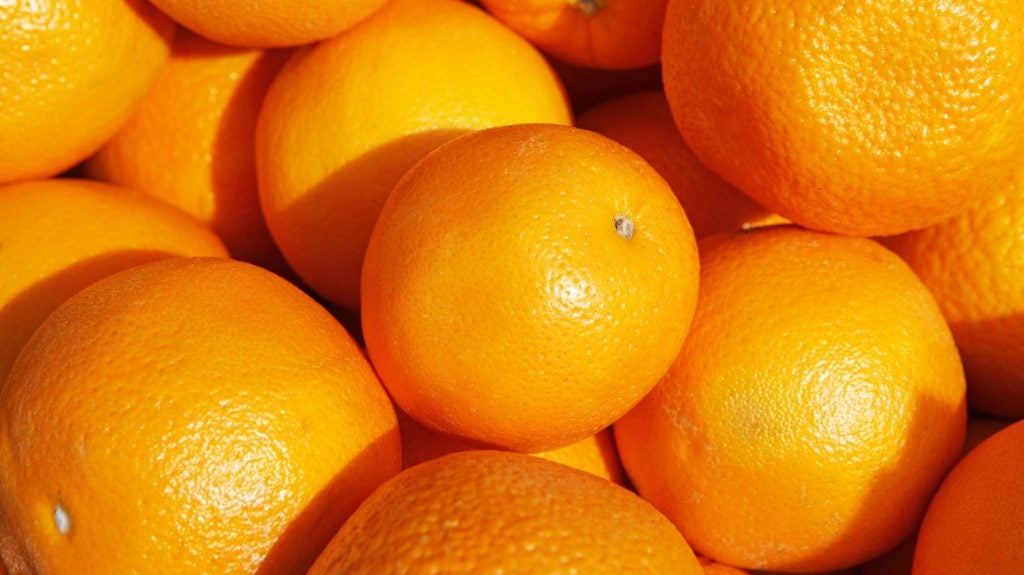
Although the Asian powerhouse has recently seen a decline in population growth, food security remains a key issue. Andy Coyne looks at what lies behind China’s attempts to tackle food waste through its Clean Plate strategy.
Eyebrows may have been raised last year when, in the teeth of the Covid-19 outbreak, Chinese President Xi Jinping called for a “green recovery” of the world economy.
After all, China is usually close to the top of the table of the world’s biggest polluters, especially when it comes to greenhouse gas emissions.
However, while there may have been a road to Damascus moment for President Xi and his government, there are also more pressing reasons of a non-altruistic manner for why Beijing is embracing sustainability.
And in the area of food, those reasons are intrinsically linked to security.
How well do you really know your competitors?
Access the most comprehensive Company Profiles on the market, powered by GlobalData. Save hours of research. Gain competitive edge.

Thank you!
Your download email will arrive shortly
Not ready to buy yet? Download a free sample
We are confident about the unique quality of our Company Profiles. However, we want you to make the most beneficial decision for your business, so we offer a free sample that you can download by submitting the below form
By GlobalDataWith a population of 1.4 billion, some 22% of the world's population, China is acutely aware it needs to fight on a number of fronts to keep everyone fed.
One of those fronts is the Clean Plate campaign, which was announced last August.
The initiative is an attempt to cut down on food waste, after Xi called the amount wasted in the country "shocking and distressing". And, while this is a campaign largely targeted at consumers and the foodservice market, there are implications for the wider food industry.
A huge issue for China and its food supply is climate change. Mass flooding across the south of the country last year wreaked havoc with rice and grain harvests. Urbanisation is another big issue as more and more people move into cities and use foodservice outlets.
The culture of over-ordering food to impress guests is another key concern for China's government. And the on-going trade war with the US is having an impact on a country that imports an estimated $75bn of food a year.
But, even after announcing the Clean Plate initiative, what the Chinese government has not yet done is issue a series of rules and regulations relating to food waste. Instead, it is relying on foodservice operators and consumers to do the right thing.
To a degree, there are signs it seems to be working. The Wuhan Catering Industry Association, for example, has urged restaurants in the city to limit the number of dishes served to diners – implementing a previous system known as N-1 where groups must order one dish less than the number of diners.
Overall, the strategy would seem to be a recognition on the part of the Chinese government that, while it would like to tackle food security, tackling food waste may be an easier win.
Michelle Huang, a consumer foods analyst for Netherlands-based financial-services group Rabobank in Shanghai, says: "More and more people have moved into the cities in China. There is less space for families, people in cities are likely to have more hectic lives and this leads to more and more consumers looking for convenience and food delivery.
"China's food delivery businesses are booming but we have also seen a rise in terms of food waste. At the same time, we have got climate change and weather events that are affecting agriculture production. The last rice harvest was damaged by flooding. This puts food waste into a more urgent agenda and there is a need to take action."
Tao Zhang, co-founder of investment fund Dao Foods International, which backs meat-alternative businesses in China, also understands the need for action but has some concerns about whether the Clean Plate campaign is short-term thinking.
"This [the Clean Plate campaign] is about China's food security concerns. It should be adopted as it helps but it's not necessarily a long-term solution to the issue," he says.
"Food waste should be approached in a more holistic way. Short-term factors are the pandemic and the impact it has on the global supply chain and the flooding last year which wiped out the harvest and added to increased food prices. Also the US-China trade war."
Zhang suggests climate change and China's lack of self-sufficiency when it comes to food production are central to concerns over the country's food security.
"It's hard to feed 22% of the world's population when you are not necessarily self-reliant," he says. "China is still importing a lot of food – more than $75bn – so the trade war with the US is not helping."
With regard to Clean Plate, both Huang and Zhang suggest the self-policing inherent in the campaign involves a huge cultural shift.
"Chinese people have a culture of over-ordering to boost their economic status," Huang says. "Restaurants could offer smaller portions. Or you could have different pricing strategies that might charge customers a premium if they can't finish all the food they have ordered at buffet restaurants.
"I think at the consumer end, it is a sort of education. When people are having big gatherings they will have to order less than before and will take the surplus home as a takeaway."
Zhang adds: "If your guest's plate is empty at the end of a meal you are not doing a good job. China's government is aware of this cultural problem and is trying to address it. But foodservice providers are business people so they want people to order as many dishes as possible."
For Zhang, the wider issue is to do with food security challenges at the macro level.
"China is pretty much self-sufficient in grain – producing more than 90% of rice, corn, and grains – but more than 80% of soybeans are imported," he says.
"China should focus on the protein challenge. It needs to be resolved sooner rather than later. China's new middle class is used to having good protein products."
The danger here was brought home last year when pork prices rose 135% in one month due to the African swine fever crisis that has hit China's pork industry.
Zhang believes that, while Beijing has so far relied on the goodwill of foodservice operators and consumers to an extent, tougher measures could be introduced further down the line.
"They are trying to make it more of a moral campaign but at some point, it may have to be baked into rules and regulations to make people accountable," he says.
A close eye on supply
While the main focus of the campaign is on foodservice outlets and consumer habits, the Chinese government also has an eye on food waste in the supply chain between manufacturers and grocery outlets, especially in the area of shorter shelf-life fresh produce.
"There is also a lot of food waste linked to food production and logistics," says Zhang. "Chinese people like to buy food fresh: vegetables, meat, and other food items. If veg is not sold within one or two days, the supermarket won't be selling it."
"This is a technology issue. Those involved in production and transportation need to solve the issue. It is an area where the government can step in and subsidise R&D efforts in areas such as cold-chain technology and better storage technology. This would help to ensure that waste in production, processes, and transportation is kept to a minimum."
One company already working on this issue is US fruit and vegetable major Dole Food Co.
Some 90% of Dole's business in China revolves around fresh produce such as bananas, pineapples, and avocados, which it either imports into the country or sources from local providers, in the case of produce such as peaches and corn.
Welcoming the Chinese government's move, Singapore-based Christian Wiegele, who is division president of Dole's Asia Fresh business, says the company is looking at initiatives focusing on extending shelf-life, cold-chain technology and 'ugly' fruit.
"We are looking at opportunities to extend the shelf-life of the fresh produce," he says. "We have launched a fund to look for partners to come up with ideas around shelf-life extension.
"Moving bananas from the Philippines to China might mean a shelf-life of a maximum of 30 days. It would be significant if we could extend that."
With China – and Dole itself – trying to avoid plastic packaging, a popular idea at present appears to be putting a natural protective coating on the fruit.
"We are also investing in cold-chain technology, especially around tier-three cities and more rural areas," Wiegele adds.
"We are working with logistics partners in this area. Bananas, for example, need to be in a cold chain a maximum of three hours after they have been harvested until they reach the retailer, without disruption. We need to improve in this area through data and hard assets.
"And, with 'ugly' fruit, there is a perception that food has to look perfect. If not, people don't buy it or discard it and it becomes waste. As an industry, we have to educate consumers that fruit that is not perfect on the outside is perfect on the inside."
Wiegele is sure the industry will be asked by the Chinese government to do more, whether that is in the form of regulations or not.
"We are set up from a mindset perspective," he says. "But will we have all the assets in place? This is a long journey and we are just at the beginning of it. But we embrace it [the Clean Plate campaign]. As a responsible supplier, we have a role to play here and we are working on reducing food waste in the supply chain."
This article was initially published in the April 2021 issue of just-food's digital magazine.








